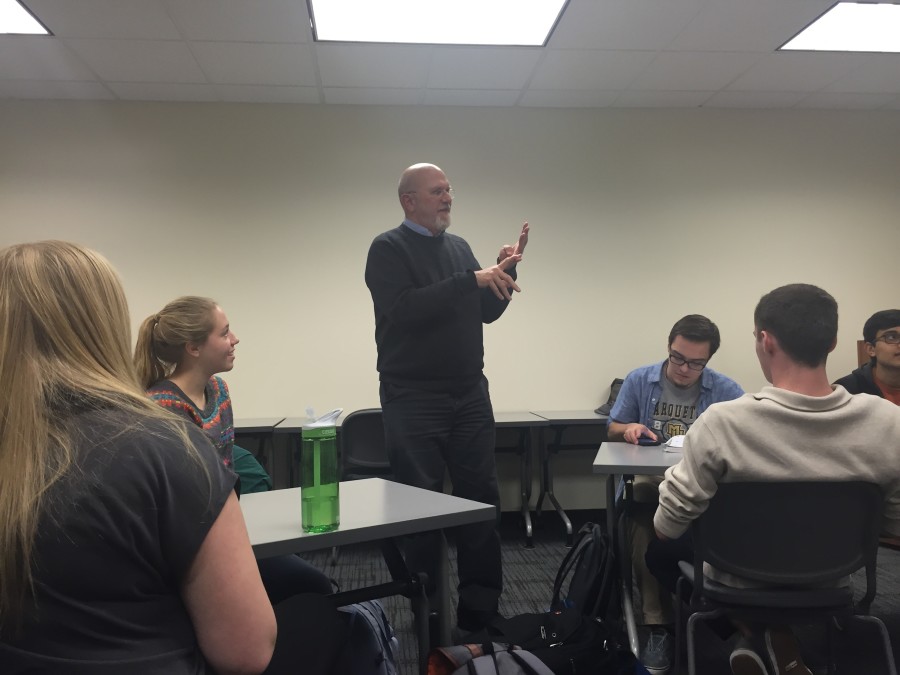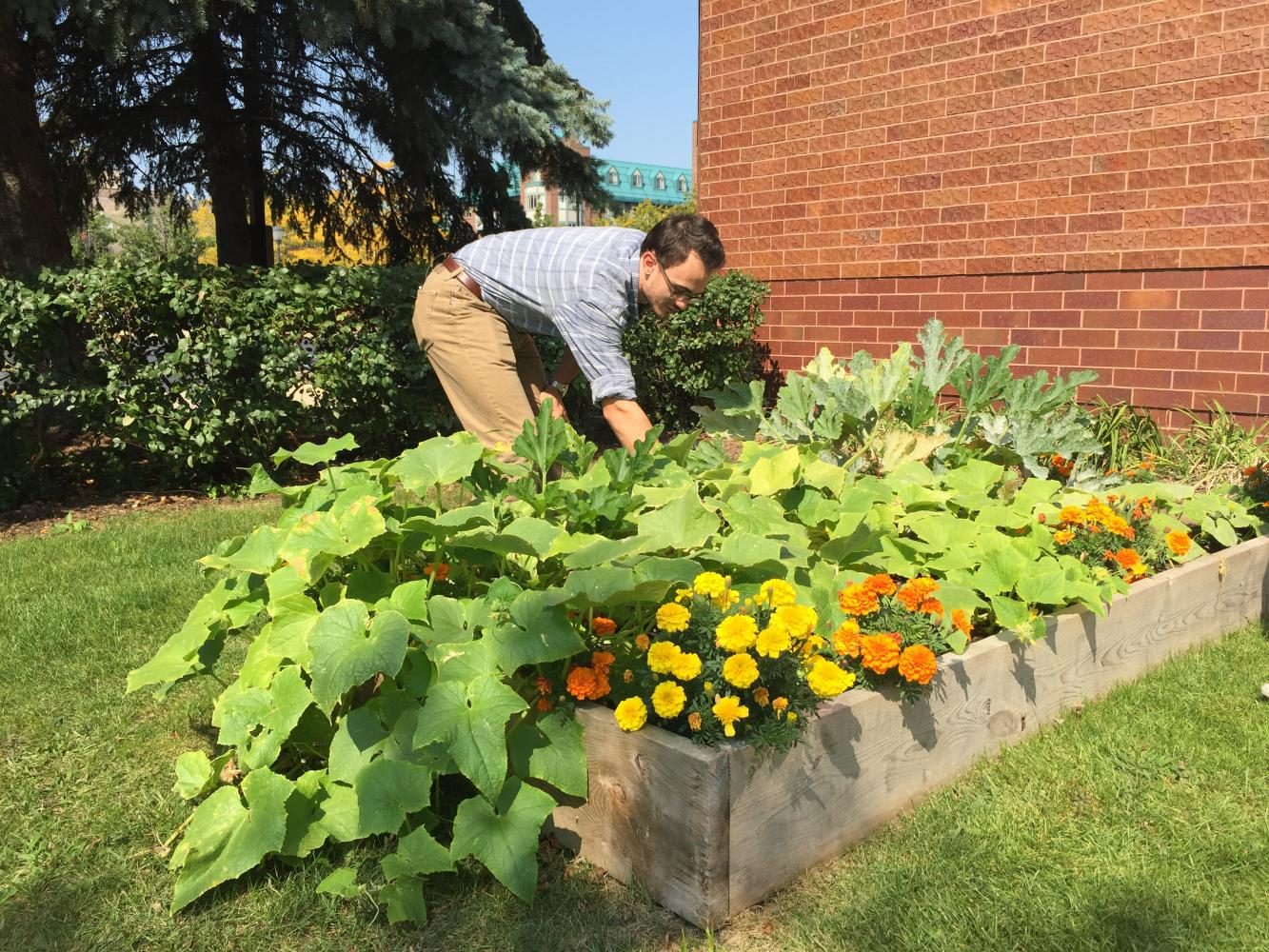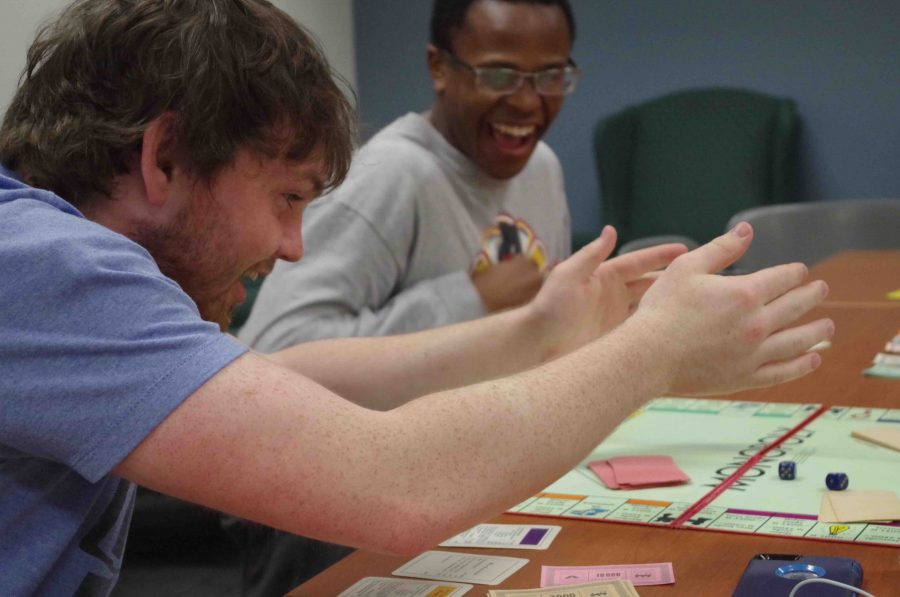Foreign films are being utilized to teach a seminar course that is foreshadowing a new German Studies major to be offered in the spring.
This semester, John Jentz, a research & instructional services librarian for Raynor, and John Pustejovsky, associate professor in the College of Arts & Sciences, began teaching Germany and Its Immigrants: A Case Study as a team. This honors course seminar is being used as a trial and launchpad for the updated major.
Pustejovsky said he saw a need to update Marquette’s current German curriculum. The current German major focuses on literature and culture. It was previously focused on literary history. It was becoming difficult to fully analyze and teach courses on German novels and literature at such a fast and in-depth pace. The curriculum slowly changed, but lost its initial literary intentions.
The new major adds intensive writing courses, literature courses, and an introduction to German studies course, an introduction to German research. These additions add 18 credits to the current German program.
The seminar is not officially in the new curriculum, but it does deal with the same topics. Professors are utilizing it to see what teaching methods work and what concepts students get most excited about. Courses that count toward the major will be offered starting next semester.
Anna Reistad, a freshman in the College of Arts and Sciences, is thinking about adding a German minor and would be interested in taking additional classes for it. She does not think enough information has been released about the new program.
The current seminar had been proposed in the past, but was not accepted into the honors curriculum. However, with the current immigration crisis in Germany, it seemed like a perfect time to introduce it.
There are 12 freshmen currently enrolled in the seminar. The class is heavily driven by discussions generated by assigned readings, current events and movies. The movies seem to be the largest contributor to these discussions.
Jentz and Pustejovsky choose the movies they show together. They research and watch each movie before it is assigned. Jentz, who previously lived and taught in Germany, proposed a few movies he watched in Europe.
“We did know that we were especially interested in Turkish immigration to Germany because the Turks are the biggest immigrant group in Germany,” Jentz said. “I had experienced that first hand when my wife and I lived there.”
In Germany, there are public baths for those who do not have a shower in their own apartment. While living in Germany, Jentz and his wife used the public baths because their apartment lacked a shower. He would meet many Turkish immigrants there who often believed him to be native to Germany.
Some of the movies shown in the class were centered around the topic of Turkish immigration, but others dealt with other immigrant groups or other countries. If the course were to be taught again, the movies would change to have a heavier focus on Germany.
The movies are mostly from the 1990s and onward. All of the films are in foreign languages with English subtitles. They focus on different migration stories from varying parts of Europe.
While the movies are used to show what immigration is really like, they do not propose solutions to the immigration crisis in Europe.
“The class discussions do a good job in figuring out what things happened in the right order but it really doesn’t answer any questions,” Thomas Messener, a freshman in the College of Arts and Sciences said.
Jentz said he believes the seminar has been successful thus far. Attendance has been nearly perfect, and discussions, especially around the movies have been dynamic. While not everyone likes the movies, as they deal with extremely heavy topics, they have certainly learned from them.
The professors try to tie the movie discussions back to current events, to show that what students are seeing on screen is happening in real life. Often times, this sparks conversation about the refugee crisis in Europe and how different countries are dealing with it. These decisions have the highest impact on the refugees themselves as they try to migrate to different countries.
While the class has opened up students to the current issues in Germany, there are many varying opinions on what should be done about the refugee crisis.
Some students want to see world leaders show compassion toward refugees in Europe. “We should help them as much as possible,” Reistad said. “We have homes and they don’t.”
Other students, like Messener, believe countries should think about protecting themselves from worldly issues.
“I’ve always kind of been hesitant about the idea, because I understand their problem,” Messener said, “I feel like it would be better if they created safe zones in their own countries. Now Europe has this huge problem because of letting in all of these refugees.”



